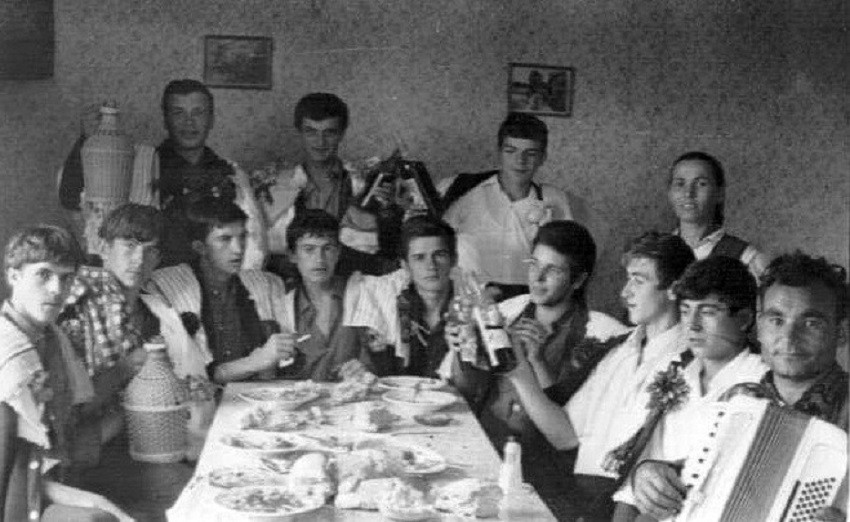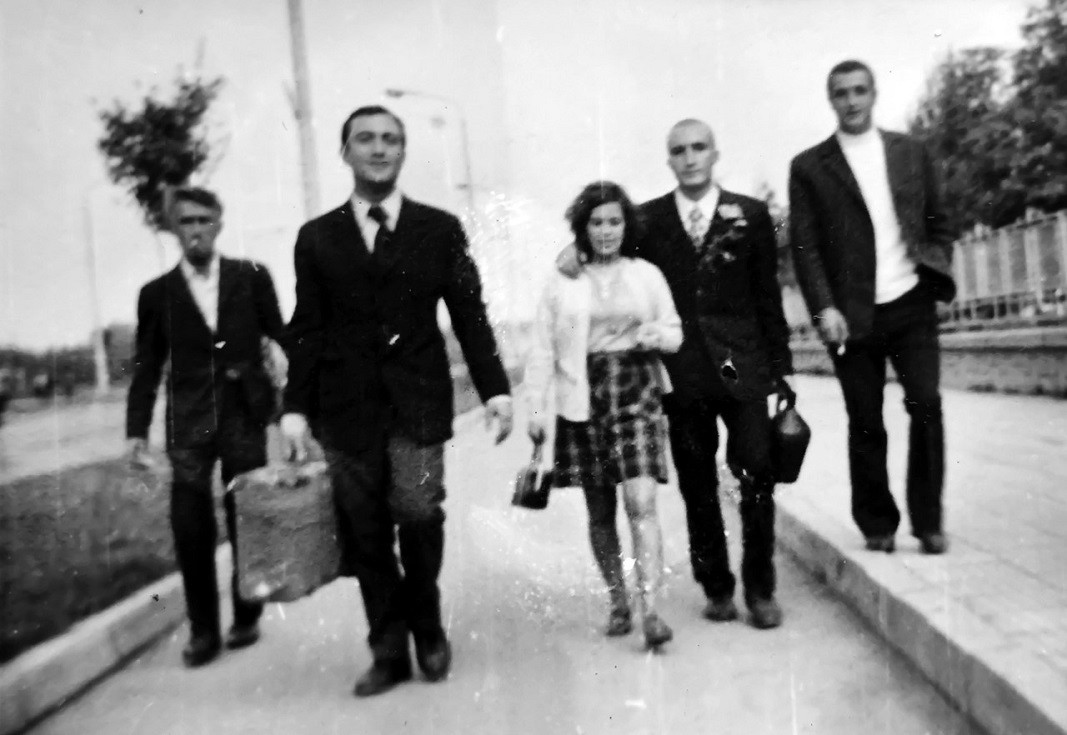“If you ever find yourself in Zhrebichko at “shanuvane” time, you would never know what you are seeing is young men about to go off to the army, you would think it was some kind of strange wedding,” says Prof. Ilia Peev. Mandatory military conscription has not existed in this country since 2007, yet the small village in the Rhodopes in Southern Bulgaria has kept the memory of the lavish parties as young men would be sent off to the army.

It is not known when the word “shanuvane” was first used and why it is used to denote this ritual. In the modern Bulgarian language, the word is not in use, but Prof. Peev’s research shows that in the past it was a word known in Bulgaria and in all Slavic languages. It is a word combining different meanings like respect, esteem, honour, dignity.
“Zhrebichko was founded by people coming from Tarnovo who, as the capital (Tarnovo) fell under Ottoman rule in 1393, fled to seek refuge elsewhere. Many of them found their way to the Rhodopes. Here, in this majestic mountain they founded Zhrebichko, which resembles Tarnovo very much, bringing the culture of the old capital here, and that included the respect they had for Bulgarian statehood, the Bulgarian army, their country, so it made sense to call the ritual of sending the men off to the army with the word “shanuvane”, Prof. Peev explains.
The “shanuvane” ritual in Zhrebichko spans ten days of celebration for the young men who have been drafted.

The first component of the ritual are the songs for the future soldiers – sorrowful, songs about love and faith which can be heard in the village from early in the morning until late into the night.
“The soldiers who would be joining the infantry or aviation, faced two years of separation, but for sailors it was three years. This explains why the songs were so sad, because separation brought pain to the soldiers, to their family, to their friends and girlfriends. An emblematic “shanuvane” song is “Devoiko, mari hubava” (Hey, pretty lass), Prof Peev says.
Petar Petrov, “Devoiko, mari hubava”, Zvezditsi vocal studio, Novi Pazar
The second element of this ritual are the gifts, the horo dancing and the celebrations.
The young men receive the first flowers and the first gift from their mothers, and as they make the rounds of the village they would be gifted by all villagers: shirts, tank tops, towels, pyjamas, footwraps, so much so that they would resemble grooms on their wedding day.

“The last evening is the most important when family and friends get together at the future soldier’s house, the party continues through the night and in the morning they all dance the last horo dance after before the young man leaves to go to the army.”
And the third “shanuvane” element is the respect and esteem for the future soldiers.

“This is the most important component because it combines the other two,” Prof. Peev says. “It is this third component that is the reason why the people of Zhrebichko have called the send-off “shanuvane”. Mandatory army service has been a thing of the past for a long time, but defending one’s country can never be a thing of the past because it guarantees the present and the future of the nation. That is what this ritual is all about.”
Photos: courtesy of Prof. Ilia Peev
The only chapel in the country to bear the names of Saints Anthony and Atha nasius is in Sandanski, and its consecration will be performed by His Eminence Metropolitan Seraphim of Nevrokop, reports Andon Kotev - one of the initiators of the idea to..
On January 17, the Orthodox Church honors the memory of St. Anthony the Great – a zealous advocate of Christianity. At an advanced age, he took part in the Church's struggle against the Arian heresy. Anthony got into an open dispute with the..
His Eminence Metropolitan Anthony of Western and Central Europe and BNR Director General Milen Mitev signed a Memorandum of Cooperation at the headquarters of the Bulgarian Orthodox Church Diocese of Western and Central Europe in the German capital,..
Bulgarian Patriarch Daniil will celebrate the first liturgy in London for the consecration of the new church of the Bulgarian Orthodox community in the..

+359 2 9336 661
